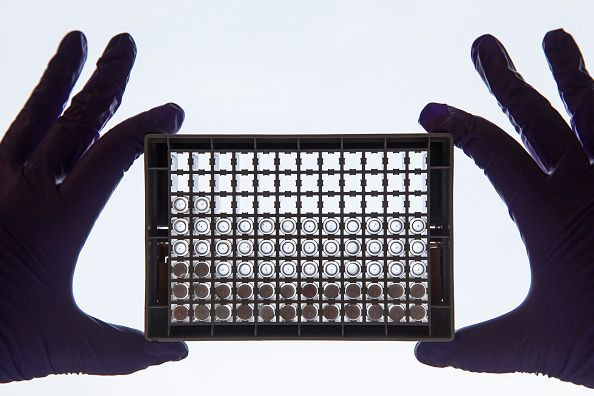Pancreatic Cancer Cure Research: Scientists Identify Protein Linked To Aggressive Deadly Metastasis

New research could bring scientists one step closer to finding a cure for aggressive pancreatic cancer, which takes thousands of lives in the United States each year.
A team of researchers at the University of Texas answered some questions about the growth of pancreatic cancer cells by carrying out preclinical experiments, the findings of which were published in the journal Nature. They discovered a certain protein that stops pancreatic cancer cells from becoming aggressive, and they also found treatments that may be able to stop the cancer cells if there's not enough of the protein around.
Read: Signs Of Pancreatic Cancer Include These Bacteria Living In The Mouth
Researchers analyzed patient-derived tumor xenografts (PDXs) and mouse models for their experiments. After studying a specific subset of tumor cells, the scientists had a better understanding of the cell process that leads to cancer growth. Results of these experiments also identified a “vulnerability” for mesenchymal cells, a type of cell that can change form, according to a press release from UT.
Researchers discovered a gene called SMARCB1 which, if restored, causes these cells to revert back to a less aggressive epithelial form. According to the release, pancreatic cancer cells in this state are prevented from becoming the extremely aggressive kind. SMARCB1 has now been dubbed a “gatekeeper” of epithelial identity.
Another significant finding from these experiments is that tumor cells unable to produce SMARCB1 also possessed increased rates of protein synthesis.
“This work represents the first step of a major effort to understand the mechanisms allowing malignant cells to hijack specific gene programs to adapt to stress and survive,” said first author Giannicola Genovese, M.D., according to the release.
“Today we have a detailed map of the genetic landscape driving cancer initiation and progression, but our knowledge of the epigenetic, metabolic, and molecular programs conferring on tumors cells the ability to change state are still elusive,” he explained.
Read: Pancreatic Cancer Survival Rates 2017: Early Diagnosis Of Deadly Cancer Now Possible With Blood Test
This year, an estimated 43,090 people — about 22,300 men and 20,790 women — will die of pancreatic cancer in the U.S., according to the American Cancer Society.
Source: Genovese G, Carugo A, Tepper J, Robinson FS, Li L, Svelto M, Nezi L, Corti D, et al. Synthetic vulnerabilities of mesenchymal subpopulations in pancreatic cancer. Nature. 2017.
See Also:
Pancreatic Cancer Cure Research 2017: Blocking Deadly Tumor Growth May Be Possible, Scientists Say
Pancreatic Cancer Early Symptoms: Recognizing These Signs Of Silent Killer Could Save Your Life
Published by Medicaldaily.com



























